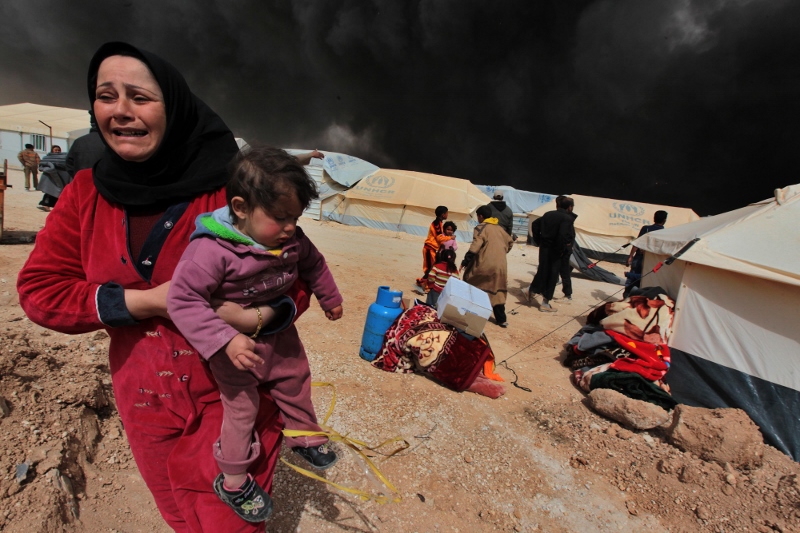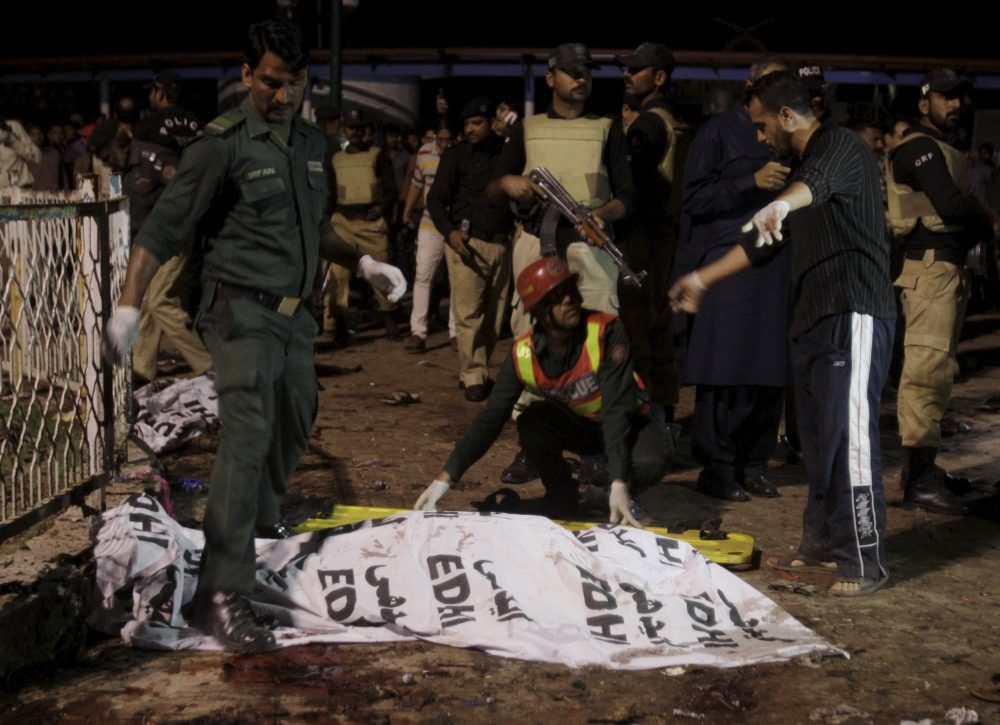
Death toll reaches 70 after suicide bombing
The Sayeda Zeinab district in Damascus, home to Syria’s holiest Shi’ite shrine, was targeted by Daesh on Sunday.
Two suicide bombers and a car bomb detonated as representatives of Syria’s government and its divided opposition began conversations in Geneva in an attempt to start the first peace talks in two years.
The UN secretary general, Ban Ki-moon, described the talks as long overdue. He said on a visit to Ethiopia: “I urge all parties to put the people of Syria at the heart of their discussions, and above partisan interests.”
The death toll from the three blasts in Damascus – claimed by the Islamic State militant group – has risen to more than 70, the Syrian Observatory for Human Rights said.
Contacts on the ground from the British-based Observatory said the attack had targeted a military bus carrying militiamen who were changing guard, and that 42 of the dead were fighters allied to the government.
The Lebanese Shi’ite militant group Hezbollah and other Iraqi and Iranian militias have a strong presence in Sayeda Zeinab, which is a site of pilgrimage for Shi’ites from Lebanon, Iran, and other parts of the Muslim world.
Bashar al-Jaafari, representative of the Syrian Arab Republic to the United Nations, said in his first briefing to journalists that Damascus was willing to ‘discuss’ humanitarian issues.
The first aim of the talks was to stop Turkey and Jordan allowing foreign fighters into Syria, calling them ‘genetically modified’.
He said: “There are foreign powers endorsing foreign agendas, aiming at making political pressure on the Syrian government by using terrorism as a political weapon.”
While much of the Syrian leadership is drawn from an offshoot of Shi’ite Islam, Islamic State practices a radical version of Sunni Islam and considers other sects to be heretical.
Security in the area has been notably tightened with roadblocks and heavy clashes have been witnessed in the first few years of the war, prompting the army and allied Shi’ite militias to become an ever-present force.















